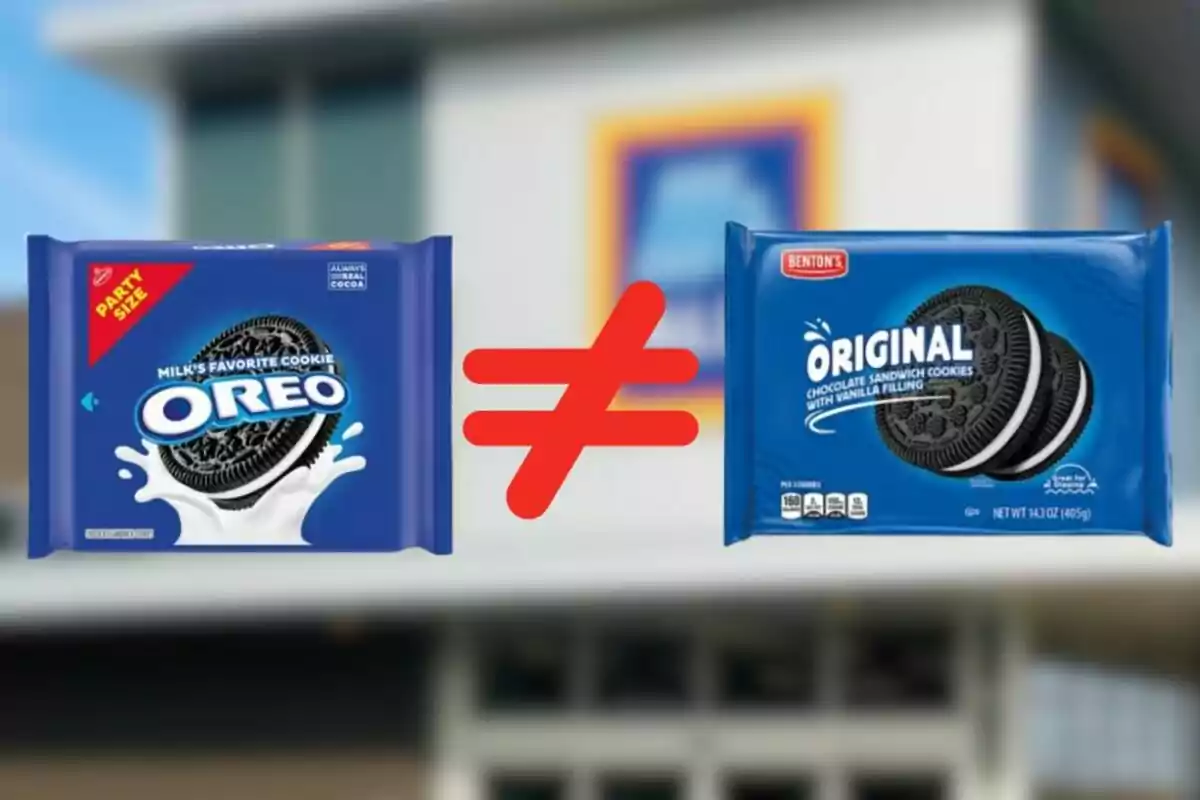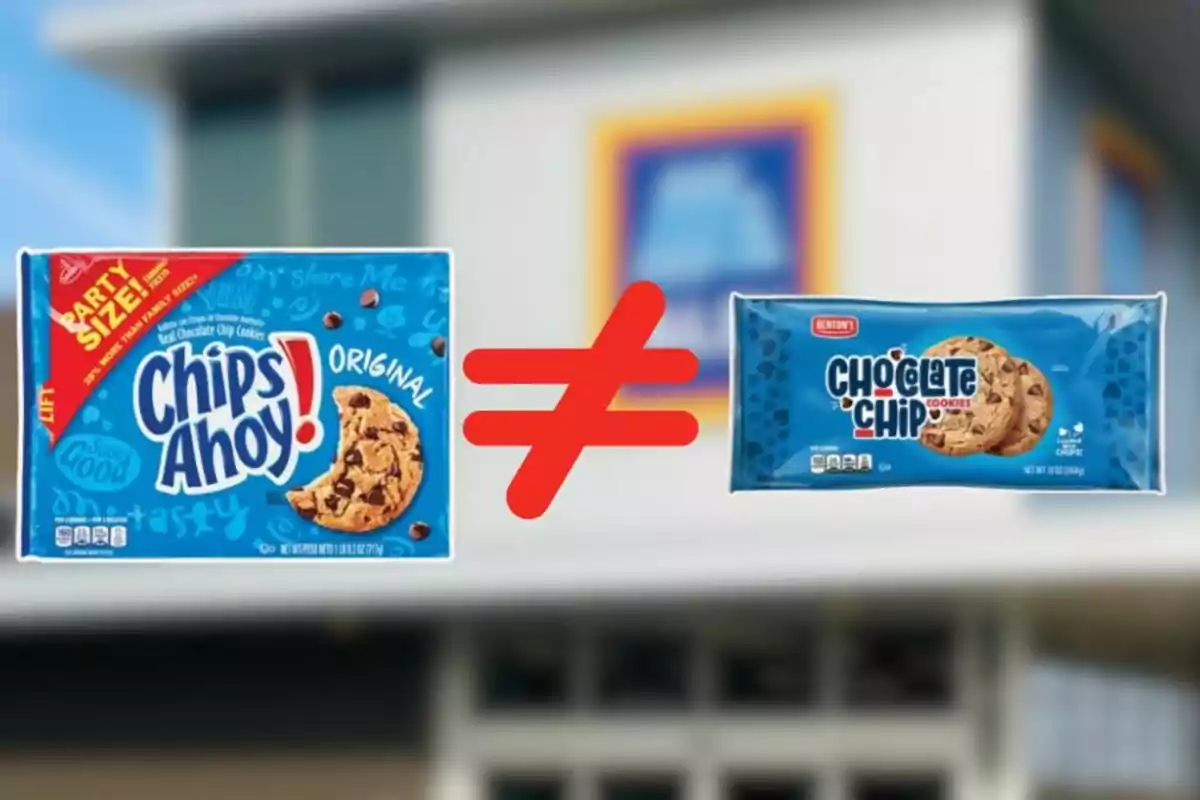
Aldi has a problem in the U.S. and has already received a complaint about it.
Aldi faces a legal dispute that could affect its strategy in the low-cost products market in the United States
In recent years, supermarket chains' offers have been essential for American consumers seeking affordable products. Aldi has stood out for its business model that offers a wide range of products at competitive prices, earning the loyalty of thousands of households. However, its success hasn't been free from controversy, especially regarding its private label product strategy.
Competition in the discount product sector is fierce, and well-known brands are always aware of any move that could affect their dominance. Aldi has kept its focus on attracting customers through its economical offerings. Although now its image and business model are at risk.

Mondelēz's lawsuit: copy or imitation?
Recently, Aldi has been the subject of a lawsuit filed by Mondelēz International, the multinational owner of iconic brands such as Oreo and Chips Ahoy. The company accuses Aldi of imitating the design of its products through its private label, Benton's. According to legal documents, Aldi has used colors, graphics, and even names similar to those of Oreo cookies and other Mondelēz products, misleading consumers.
The lawsuit, filed in May 2024 in Illinois, argues that Aldi is seeking to benefit from the popularity of Mondelēz's brands without consent. In addition, it is argued that the similarity in packaging design could dilute the distinctive value of Mondelēz's products, such as Oreo cookies, which are recognized worldwide. According to a GlobalData Retail analyst, this situation "closes a problematic chapter for Aldi," which has been under the industry's scrutiny for its marketing strategy.

Aldi: response and adaptation in a competitive market
This isn't the first legal challenge Aldi faces regarding its private labels. In previous years, the supermarket chain was also accused in other countries of using packaging similar to that of other brands. However, the situation in the United States represents a greater challenge, given the size of the market and the long-term impact.
Aldi has replied to the lawsuit by adjusting some of its product designs, but the legal dispute is still ongoing. Meanwhile, other low-cost chains such as Dollar General and Five Below keep offering similar products at low prices, which intensifies the competition.

In this scenario, Aldi will have to find a way to balance its low-price strategy with the need to respect intellectual property rights and the identity of other brands. The resolution of this conflict could have a significant impact on the way Aldi operates in the American market.
More posts: